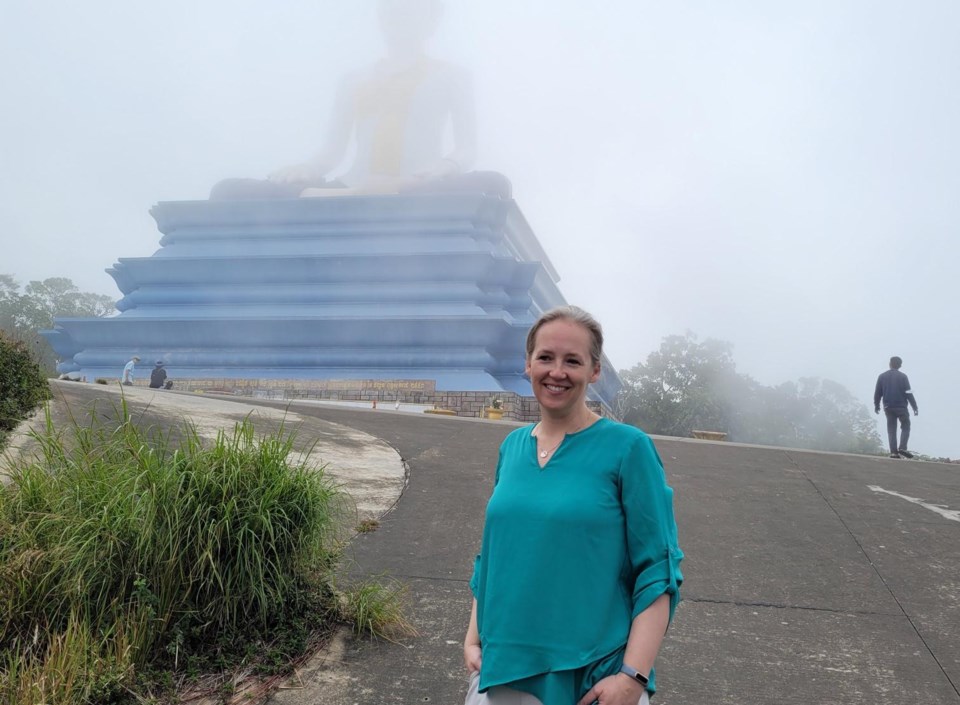In just a four-year span between 1975 and 1979, more than 1.5 million Cambodians were systematically murdered by the Khmer Rouge, the totalitarian Communist regime led by Pol Pot. Even such harrowing death totals can’t do justice to the immensity of such a tragedy. Entire generations of Cambodians were lost, missing links in a familial and cultural chain that stretches back centuries.
For Cambodians of a certain age, this brutality is a living memory, not some distant past—the scars are still fresh.
“Many living Cambodians remember it and lived through it, lost family members or lost neighbourhoods, so there is this big gap in democratic institutional knowledge in the country that they’re trying to rebuild,” said Jen Ford, Whistler councillor and Union of BC Municipalities president, who recently returned from a knowledge-sharing trip to the Southeast Asian country. “They’re very open about it and very forthcoming about this being life-changing and a tragic loss for their country. Much of their cultural identity was deleted from history.”
Into that void came a robust local political culture, one that leaned on the already collectivist culture that was at the root of Cambodian society, developed in the shadow of the strict authoritarian rule, limits on human rights, and corruption that has persisted at the federal level.
Since 2018, the UBCM, through the Federation of Canadian Municipalities (FCM), has partnered with Cambodia’s National League of Councils—which includes roughly 1,600 councils and communes, compared to the 188 local governments represented by the UBCM—with the goal of sharing insights and building institutional capacity, an effort that was capped, most recently, last month, when Ford and another senior UBCM member visited Cambodia in-person.
On the UBCM side, Ford said officials shared some best practices on advocacy and communications with the public.
“There’s a real gap in modern technology there still, so comms, newsletters, how we communicate with councils and advocate with provincial and federal governments and just some of the things we do as UBCM [were things we shared],” Ford said. “Another big part of the sharing was the place of women in local leaderships. Diversity on boards is a really important part of our democracy, so I shared a lot of stories from my own experience. They’re going to an election soon for many of their councils, so they were really interested in how to attract more women to local politics.”
In February 2022, UBCM began participating in the FCM’s Partnerships for Municipal Innovation-Women in Local Leadership program, which aims to increase women’s capacity to get involved in and lead local governance, as well as local governments’ capacity to deliver inclusive, gender-responsive services. According to a 2021 research paper by Seattle University’s Phanghouy Chea, Cambodian women held less than 20 per cent of all political positions in the country in 2020—although women participation in politics has increased each of the last three elections. “There is a big gap between policy and practice to promote women to have equal opportunities in the political arena and other leadership roles,” Chea wrote.
Among the major takeaways for B.C. leaders were just how deeply Cambodians “culturally rely on each other,” Ford said. “They lean into neighbouring communities to share services and to share some of the expense of providing services to citizens. That was certainly interesting.”
Another lesson Ford came away with was just how vitally important consistent follow-up is at the local political level. When local officials receive training on this or that topic in Cambodia, Ford said it is customary for there to be in-depth and frequent follow-ups to see how that training has taken root.
“Four years is a long term if you’re not working well together, and you can potentially get a lot done if you are working well together,” she added. “Those kinds of back-and-forth were really interesting.”
On a personal level, Ford said the experience that brought her from the bustling streets of Phnom Penh to the port tourist city of Kampot was unlike anything she had done before.
“It’s a destination I’d never have imagined as far as culturally being so far from home, but there was so much kindness and such a gentle welcoming sense everywhere I went,” she said. “I would say, for me personally, it offered perspective, I think. I admire how kind and welcoming they were in spite of all the hardship.”




